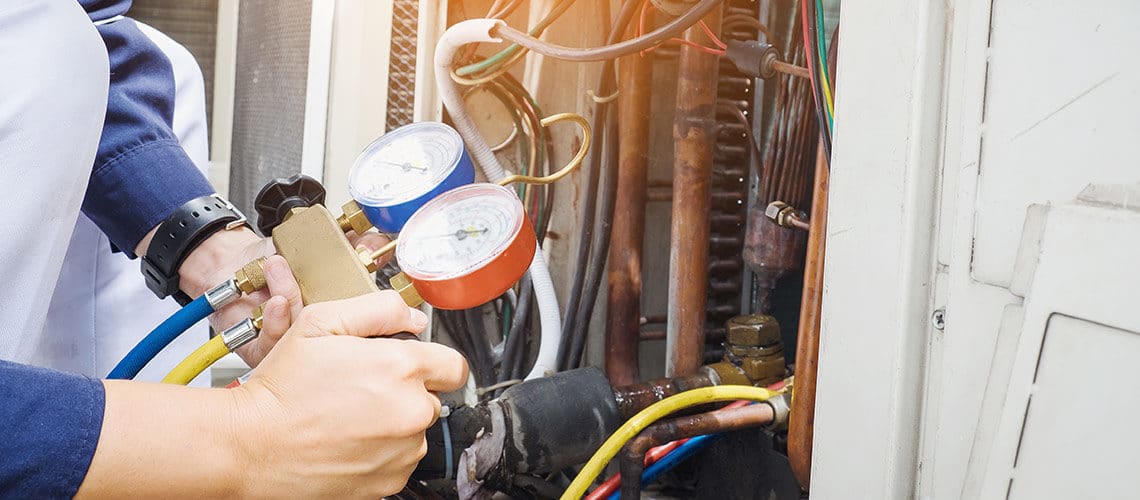Improve your indoor comfort with top-rated hvac services.
Exactly How to Boost Power Efficiency With Your Heating And Cooling System and Heater Upgrades
As power expenses continue to climb, the value of enhancing energy efficiency via HVAC system and heater upgrades can not be overstated. Evaluating your existing system's performance and considering energy-efficient choices are necessary first actions.
Examine Your Present System
Prior to starting any upgrades, it is important to examine your current a/c system and furnace to recognize their efficiency and efficiency. This initial analysis offers a structure for determining locations that require enhancement and informs decisions concerning potential upgrades. Begin by checking out the age of your heating and cooling system, as obsolete versions may do not have modern energy-saving functions.

Power usage records will certainly also be instrumental in assessing your system's operational prices. By examining utility costs, you can identify patterns of power use and identify spikes that necessitate additional examination. Consider carrying out a professional power audit to receive a professional analysis of your system's performance. This thorough assessment will certainly guide you in making notified selections about needed upgrades, guaranteeing that your financial investments in power efficiency produce the wanted benefits.
Upgrade to Energy-Efficient Designs
Updating to energy-efficient models is a crucial step in improving the total efficiency of your cooling and heating system and furnace. These contemporary systems are made to consume much less energy while supplying optimal heating & cooling, resulting in considerable price savings on energy expenses and a reduced environmental impact.
When taking into consideration an upgrade, try to find versions that have high Seasonal Energy Effectiveness Ratios (SEER) for air conditioning and Yearly Gas Usage Effectiveness (AFUE) scores for heating systems. These scores suggest the efficiency of the units, with higher numbers reflecting better efficiency. Energy-efficient versions often incorporate sophisticated innovations, such as variable-speed motors and smart thermostats, which even more enhance power financial savings.
In addition, lots of energy-efficient a/c systems are furnished with enhanced insulation and better sealing, which reduce power loss and boost indoor comfort. residential hvac company. While the preliminary investment might be greater, the long-lasting savings on power expenses and potential tax incentives for utilizing energy-efficient home appliances can offset this expenditure substantially

Inevitably, updating to energy-efficient models not only contributes to a much more lasting future yet additionally elevates the comfort and efficiency of your home or company.
Optimize System Settings
To make best use of the performance of your HVAC system and furnace, it is important to enhance system setups customized to your specific needs. Start by setting your thermostat to an energy-efficient temperature. The U.S. Department of Power advises a winter setup of 68 ° F when you are conscious and decreasing it while you rest or are away. In summer, objective for 78 ° F throughout the Recommended Site day.
Utilize programmable or smart thermostats that allow you to schedule temperature level modifications immediately. This ensures your system runs only when required, reducing power usage. Additionally, make certain that your system is established to run in the appropriate mode-- heating in winter months and air conditioning in summer-- while staying clear of the constant fan alternative unless required for air circulation.
Consistently evaluation and adjust setups based on seasonal adjustments, occupancy patterns, and specific convenience choices. Make certain that vents and registers are unhampered, allowing for optimum airflow. Ultimately, take into consideration zoning systems that make it possible for individualized comfort in different areas of your home, even more improving effectiveness. By fine-tuning these setups, you can accomplish substantial power cost savings while keeping a comfortable living atmosphere.
Improve Insulation and Sealing
A well-insulated home is vital to maximizing the efficiency of your Heating and cooling system and furnace. Proper insulation decreases the workload on these systems, thereby conserving energy and decreasing energy costs.
Along with insulation, securing spaces and cracks is important. Pay special attention to windows, doors, and any infiltrations in wall surfaces, such as electric outlets and plumbing fixtures. Weatherstripping and caulking can effectively secure these openings, stopping drafts that jeopardize your a/c effectiveness.
Furthermore, guarantee that air ducts are effectively shielded and sealed. Leaky air ducts can cause click this site considerable energy losses, reducing system efficiency. Utilizing mastic sealant or steel tape to secure duct joints can enhance air movement and effectiveness.
Schedule Routine Upkeep
Regular maintenance of your Heating and cooling system and heating system is necessary for ensuring optimal efficiency and long life. Throughout upkeep, a qualified service technician will certainly clean and replace filters, check refrigerant degrees, check ductwork for leakages, and assess total system operation.
It is suggested to schedule maintenance at the very least twice a year-- once in the springtime for the air conditioning system and when in the succumb to the heating unit. air conditioner repair. Normal upkeep helps maintain consistent interior temperature levels, making sure comfort throughout the year. Additionally, a properly maintained system runs much more efficiently, which can bring about recognizable decreases in energy expenses
Overlooking maintenance can lead to reduced efficiency, raised deterioration, and ultimately, system failing. By prioritizing normal service, homeowners can stay clear of unforeseen breakdowns and guarantee their heating and cooling system and heater run at peak efficiency. Purchasing upkeep is an important step in improving energy performance and creating an extra sustainable home setting.
Conclusion
Finally, enhancing power efficiency within cooling and heating systems and furnace upgrades is necessary for decreasing energy usage and improving general convenience. A methodical strategy that includes examining the existing system, investing in energy-efficient designs, optimizing settings, improving insulation, and organizing regular maintenance can cause substantial pop over here benefits. Carrying out these strategies not only reduces power costs however additionally adds to a more sustainable setting, making it crucial for homeowners to focus on these upgrades.